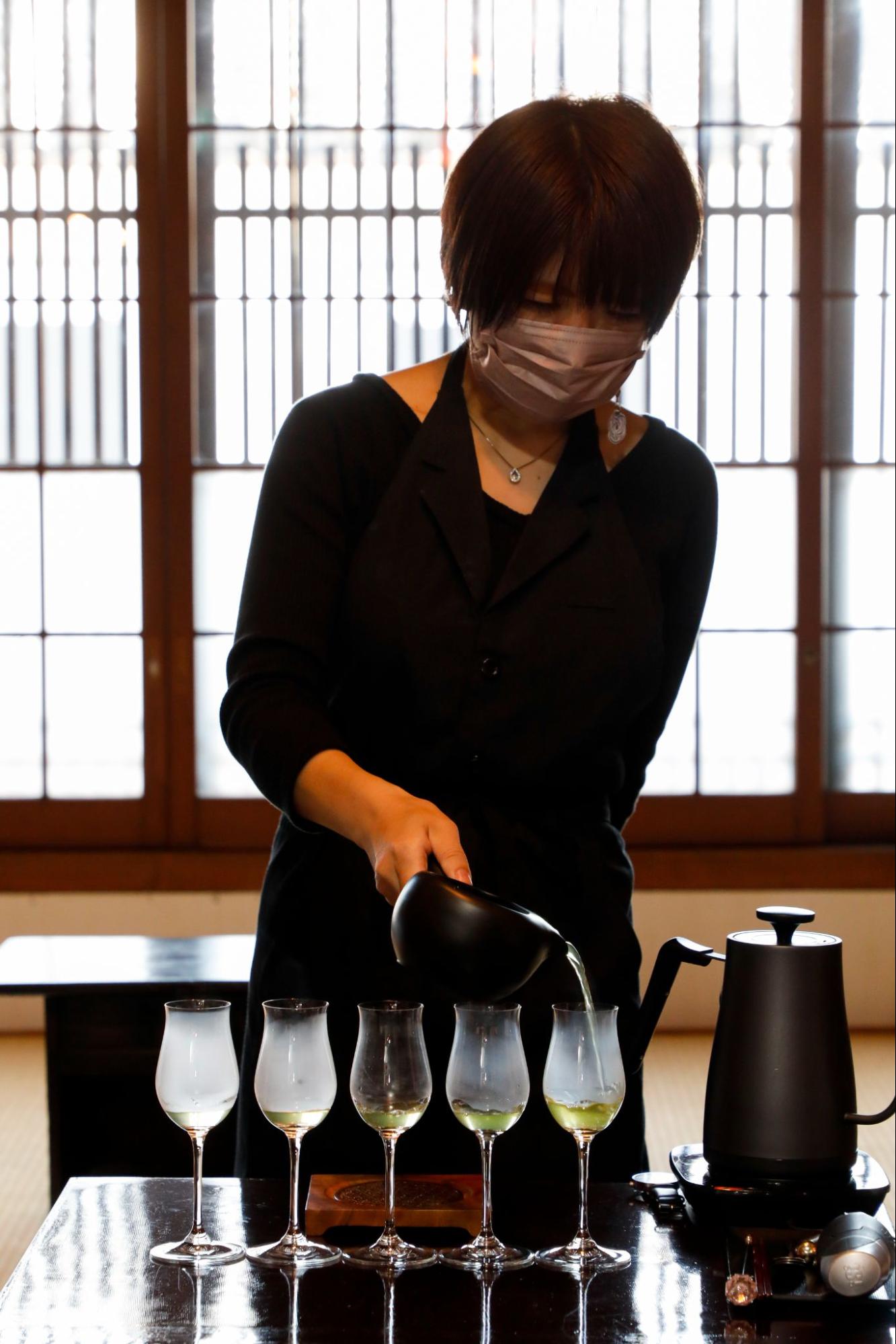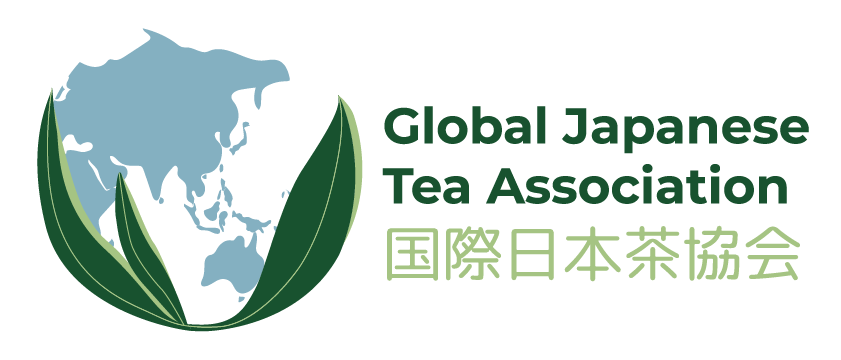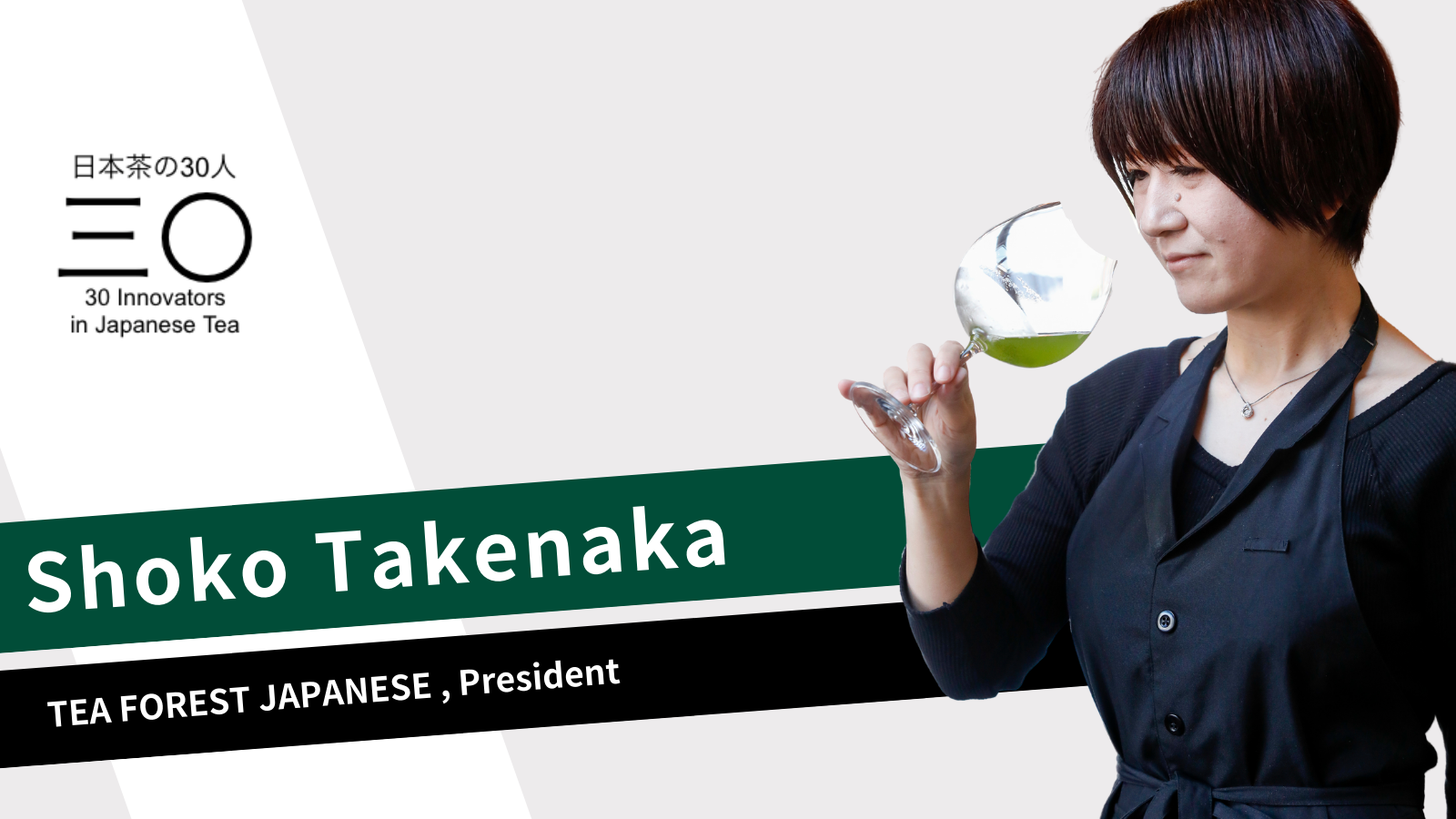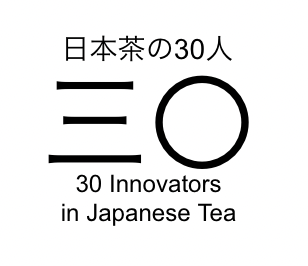More than 20 years have passed since the Japanese tea instructor system began, and various seminars and workshops have been held in each tea producing areas, not only during the tea picking season.
Recently, each tea producing area has also begun to offer a series of courses such as “Chirancha Advisor Training Course”, “Ujicha Academy”, and “Sayamacha School”. Behind this trend, there is a growing need among tea-loving consumers to learn more about tea.
In response to this trend, the Yamecha Sommelier School opened in 2022 to train people to be able to brew Yamecha in a tasty and enjoyable way.
One interesting aspect of the Yamecha Sommelier School is its ambitious plan to train students in four courses (concierge, junior sommelier, sommelier, and master sommelier). Nowadays, tea in plastic bottles has become common, but the potential of tea can change by knowing how to brew it and the charm of doing it properly. This is an important theme essential to expanding the possibilities of tea.
We interviewed Masako Takenaka, a full-time instructor at Yamecha Sommelier School, providing opportunities for learning and experiencing the appeal of tea.
Shoko Takenaka, the Representative of the TEA FOREST JAPANESE
While working as a wagashi chef at a wagashi shop in Fukuoka City, Takenaka-san began learning about Japanese tea. Upon leaving the wagashi shop, she started the Japanese tea event business TEA FOREST JAPANESE.
Takenaka-san is a tea education instructor for the NPO Japanese Tea Promotion Association. She is also a certified wagashi coordinator of the International Japan Food Licensing Association, a member of the Yame Traditional Gyokuro Branding Staff, and a board member of the Fukuoka Prefecture branch of the NPO Japanese Tea Instructors Association.
Contents
Launch of Yamecha Sommelier School. The “Enjoy the Now of Yamecha” event was the catalyst.
Q: Please tell us about the Yamecha Sommelier School
Takenaka: Sponsored by the Yame Chamber of Commerce and Industry the Yamecha Sommelier School is held in a historical building called Yame Yokomachi Machiya Koryukan – a renovated former sake brewery built in the late Edo period. Here you can learn about tea history, effects and delicious ways to brew it.
The Concierge Course is the first course in the Yamecha Sommelier School, and its purpose is to learn about Yame tea in a tasty and fun way, and to expand the circle of Yametea fans. It is a one-day program, so you can spend the day getting to know Yame tea as well as doing some sightseeing.
In the morning, participants learn about the Yame tea history, kinds, effects and ways of brewing it. In the afternoon, there is a tea presentation session where participants enjoy Yame tea in a glass of wine and taste six different kinds brewed in a tea ceremony style.
The Junior Sommelier Course is a higher-level course. This course is designed to give participants a deeper understanding of the uniqueness and deliciousness of Yame tea, and to provide them with practical experience.
For example, participants visit Reiganji Temple in Kuroki Town, Yame City, which is said to be the birthplace of Yame tea, to listen to this story, experience tea picking in a tea field, and visit a tea factory to learn about tea processing.
In the future, we plan to start an even higher-level course – the Sommelier Course, but for now, we offer two courses: the Concierge Course and the Junior Sommelier Course, so that everyone can learn about the allure of Yame tea.
Q: Yamecha Sommelier School would not have started without you. Please tell us why you started the school.
Takenaka: The Yamecha Sommelier School started in 2022, but before that, we were asked to create something that would lead to more tourism in Yame, so we have held eight one-hour tea events each month to enjoy the now of Yame tea.
Yame City is at the very end of Fukuoka Prefecture, so it is a bit inconvenient if you do not have a car. There are trains and buses, but they are infrequent. It was a place for tea lovers to go mainly during the new tea season. So, we were asked to hold an event that would encourage people to come to Yame on weekends or when they have time off work.
The flavor of tea is constantly changing, not just during the new tea season from April to May. We hold monthly events where people can experience the changing flavors of the tea. Every month we have 6-7 kinds of tea to enjoy Yame tea of the month.
It has been four or five years since we started these events, and it was at that time that the then chairman of the Yame Chamber of Commerce and Industry, told me “If we promote Yame tea in this way, of course it will connect to tourism, but it will also surely connect to the consumption of Yame tea”. This was one of the reasons why we created the school.
Q: Please tell us about Yamecha Sommelier School and your personal mission.
As a business, we need to continue to be a source for people who are interested in Yame tea, want to learn about it and develop it further. In order to continue to exist, we must be in a sustainable state of operation, so we still have a lot of work to do in terms of management.

In order to increase the number of people who are interested in Yame tea, as an individual I am learning, deepening and creating something new, to offer something that hits the antennae of various people from many different directions.
Q: What does Japanese tea mean to you?
Takenaka: It is the center of my curiosity.
Let’s visit to the origin to experience the taste of tea brewed by its producers before spreading it.
Q: Did you become interested in Yame tea, because you lived in Fukuoka?
Takenaka: Do you know the manga called “Chabashira Club”?
There is a scene in the manga where Suzu-chan, the main character, travels around the country visiting tea farms in a tea food truck.
I think my job as an instructor is to show the appeal of tea from all the prefectures, because our customers are not only from Fukuoka but from all over Japan.
In order to convey the appeal of tea from all the prefectures, I go to the producing areas and try to remember the taste of the tea brewed by the tea producers. Even now, if I need to introduce tea, I find it important to firstly visit the origin myself.
Q: What are some of the difficulties in handling Japanese tea?
Takenaka: Unoxidized green tea is always surrounded by the possibility of oxidation. I feel it is difficult to provide both the tea leaves in a bag and the tea after brewing in the best condition.
Thinking about the future of Japanese tea from the perspective of learning
Q: Do you have a future vision that you would like to realize through the Yamecha Sommelier Course?
Takenaka: In Japan, there is still the idea that tea should be served for free out of the spirit of hospitality. I would like to increase the number of consumers who recognize the value of things. We need to develop human resources who can convey such value.
From the school as a place of learning we would like to help solidify the tea industry by helping to improve everything from production to sales.
Q: What do you think the future of the tea industry will be like?
Takenaka: Japan is a very small country compared to the rest of the world, so in terms of world tea production, our tea production is insignificant.
High quality tea leaves will always be in demand by a certain segment of the population, so I think that quality-oriented tea production will remain. On the other hand, we also need every-day teas. And I would like to continue to create opportunities for people to get to know the unique regional teas, so that through the information society of today these teas can be handed down to future generations.
Q: Do you know anyone working on any interesting initiatives?
Although it is a bar and therefore alcohol based, I think it is wonderful that the Japanese Salon Shizuku, run by Hiroaki Takahashi in Fukuoka City, Fukuoka Prefecture, creates cocktails that highlight the tea characteristics.
Among other beverages, Japanese tea has a very delicate flavor, and I think it is one of the most difficult to make tea cocktails with.
The number of Japanese tea shops is increasing due to the matcha boom overseas and the domestic trend towards local production for local consumption, but the challenge is that it is difficult to bring out the full appeal of tea.
Q: What do you think about the future of the tea industry?
Takenaka: The response from our clients and target audiences indicates that they see the value, but we are also acutely aware that the information is only reaching those who are already interested.
Also, although this is not limited to the tea industry, it is an industry with many individual business owners, so I think it is undeniable that collaboration is difficult.
There is a limit to what an individual can do. So as for the future of our company we are working hard to see how we can continue and expand the business.
All photos by TEA FOREST JAPANESE


